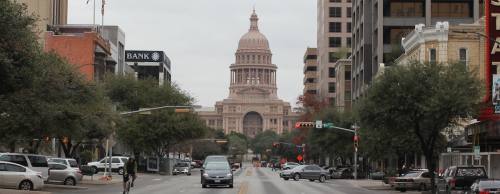Local leaders say city personnel, economic development incentive deals, labor contracts and service programs are all at stake should the property tax revenue cap bills proposed by the Texas Legislature last week gain traction.
After a failed attempt to pass similar laws in 2017, the Texas House and Senate introduced tax reform bills on Jan. 31 that would restrict cities like Austin—those which collect more that $15 million in annual property tax revenue—from increasing property tax rates that fund city operations by
more than 2.5 percent without voter approval.
The property tax revenue cap for taxing entities currently stands at 8 percent. With the exception of last year, Austin City Council has increased city taxes by or near the legal maximum—between 7 and 8 percent—each year since the new 10-1 council took over in 2015.
A 2.5 percent cap would result in a $51.7 million budget deficit within the next three years, according to city budget numbers. With so much money at stake, City Council members warned Tuesday of dire consequences should the state cap their ability to raise taxes.
District 4 Council Member Greg Casar called it the worst information for city leaders to receive, as they will be forced to have conversations over which staff to lay off, which fire stations to staff or not staff and which libraries to consolidate.
“There is just no way we can help the people … we want to help,” Casar said. “[Instead] we’ll be talking about how to mitigate hurt. Given that the legislature is more concerned with forcing austerity on people rather than helping them, we have to start preparing for that potential.”
District 10 Council Member Alison Alter said it’s likely the city would not have a choice but to lay off some city staff.
“A huge portion of our budget is spent on personnel and there’s just is only so much room to maneuver,” Alter said. “There are a lot of things where we really don’t have a choice if we want to provide the safety that we deserve.”
District 3 Council Member Pio Renteria floated the idea of backing out of some economic incentives and tax abatement deals the city has with corporations in town, such as the Domain developers, to which the city owes $22.8 million over the next four years. Renteria said he wants state legislators to know how much the city is giving corporations in order to let businesses thrive.
“If the state is going to come after us we might have to pull back on some of these tax credits we offer to businesses,” Renteria said. “I want to make sure we’re able to recover a lot of these resources we [might otherwise] do without.”
Austin currently has eight active tax incentive agreements with companies worth roughly $127.2 million. The city still owes $33.1 million in these agreements, according to city data.





